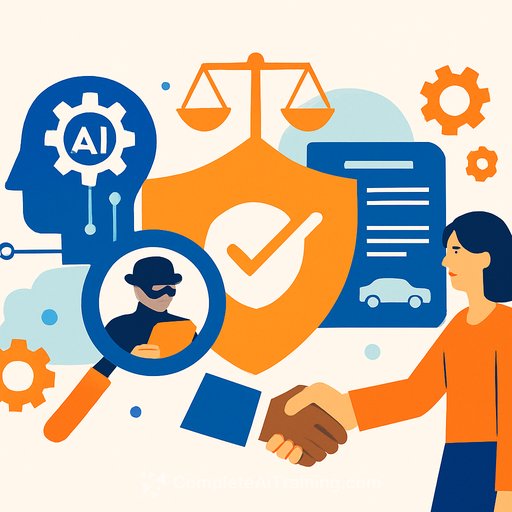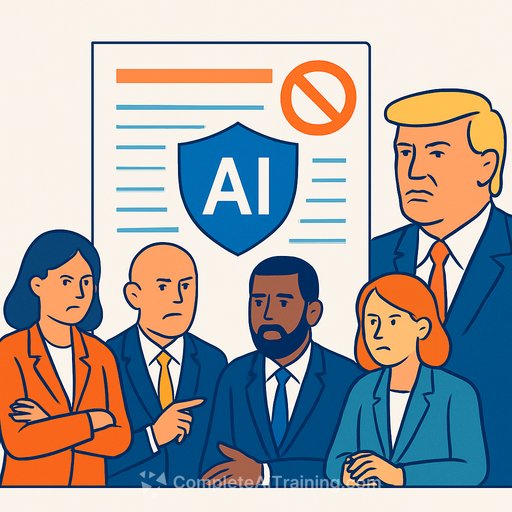Both the enemy and the saviour: how AI could majorly disrupt the insurance industry
Artificial intelligence is set to change how Canberrans select insurance policies. But local brokers point out that the reality of implementing AI is more complex and costly than it seems.
AI's potential and current limitations in insurance
A recent report by the CSIRO and the Insurance Council of Australia highlights AI’s ability to boost productivity—a key government focus. Yet, insurance brokers say the industry is still catching up. AI’s role is growing but is unlikely to replace brokers anytime soon.
One key challenge remains: tackling insurance fraud. AI can help spot fake claims, but it also makes creating false claims easier.
New tech for insurance fraud
Dr Stefan Hajkowicz, a CSIRO scientist and co-author of the report, explains AI’s dual role in fraud detection. It can speed up claims processing, simplify identity verification, and offer detailed policy assessments. However, AI-generated fake evidence complicates fraud detection.
“AI is both the enemy and the saviour when it comes to insurance fraud,” Dr Hajkowicz said. “Insurance companies might face so many fabricated pieces of evidence that it becomes unmanageable. On the other hand, AI tools can flag fake photos or false claims effectively.”
While AI promises efficiency and could help control rising insurance costs, its adoption in Australia remains cautious and experimental. Major insurers are just beginning to transition from pilot programs to real-world applications.
Impact on insurance jobs and operations
Kristy Teer, director of Brindabella Insurance Brokers in Fyshwick, notes that despite significant investment, AI use in everyday operations is minimal. Her team mainly experiments with tools like Microsoft Copilot and ChatGPT for tasks like client report summaries.
“We’re not heavily using AI yet. Most administrative tasks have already been automated through IT, not AI,” she said. “This shift means we need more qualified staff, reducing entry-level admin roles. It’s tougher for new grads entering insurance with degrees but little practical experience.”
Similarly, Nathan Hobbs from Chirps Insurance in Phillip expects AI systems to become more prominent in four to five years. He emphasizes the personal nature of insurance broking, especially given the liability and responsibility brokers hold for client decisions.
“Insurance companies are looking to make our work easier with new systems, but there’s been little change so far,” Hobbs said. “The broker’s role remains personal and crucial for complex coverage decisions.”
Why brokers will remain relevant
Despite digital advances, insurance broking has proven resilient. Dr Hajkowicz compares it to the travel consultant industry, which many predicted would vanish with the internet but hasn’t.
“People continue to use brokers because insurance risks can be high and coverage details tricky,” he said. “Where problems are complex, brokers add value by using AI tools to assist rather than replace their expertise.”
For insurance professionals interested in learning how AI tools can support their work, exploring targeted AI courses could be valuable. Resources like Complete AI Training’s insurance-focused courses offer practical insights into AI applications in the industry.
Your membership also unlocks:






